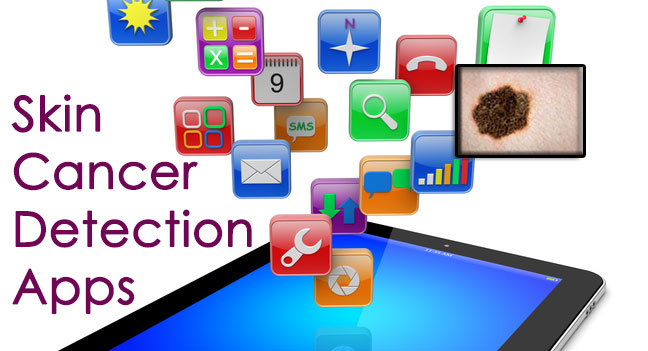
*photo credit depositphotos
I recently read an article regarding the use of apps that claim to help consumers diagnose and identify malignant melanoma lesions. Through the submittal of a photograph, the app user can find out whether he/she needs to worry about a mole being melanoma.
The US Federal Trade Commission is going after some of these companies behind the apps and announced they have reached settlements with 2.
How do you feel about this? Would you feel comfortable receiving a diagnosis based on computer algorithms or just from a photograph? I can understand the usefulness in an app helping to track your weight, activity levels and even monitor for fertility, but what about when it comes to melanoma.
Do you really want to take this risk in listening to information from an app over making an office visit with a dermatologist?
I don't need to tell you what could happen if a melanoma went undiagnosed. Malignant melanoma is one of two serious skin cancers with the potential to metastasize and ultimately take your life. I repeat, it can TAKE.YOUR.LIFE.
A few years ago, I read about these apps which really made me fuming upset.
It still upsets me today to know the potential harm these apps can cause due to misdiagnosing. Imagine the lives that can be affected if in fact a melanoma was missed and treatment was avoided or delayed because someone listened to an app instead of going to the doctor. Even with disclaimers, I worry that consumers will take this information AS actual medical advice.
One study mentioned in the article, looked at 4 different melanoma diagnosing apps and their level of sensitivity for diagnosing lesions that were melanomas. 1 app included an actual physician, so it was excluded. The best performing app among the remaining 3 still diagnosed 30% of actual melanoma lesions as "ok."
In practice and working with patients, if a patient called up worried about a new or existing mole, our protocol was to recommend that the patient make an office visit. And when the patient came, the doctor would look at the mole in question with a dermatoscope and depending on what he saw, as well as taking into account the patient's history, a biopsy may have been performed. If a biopsy was taken, the specimen was sent to the lab, processed and then analyzed by the dermatopathologist or skin pathologist. Only through the help of the dermatopathologist, can a diagnosis be made.
Dermatoscopes are hand held microscopes dermatologists use in examining moles. It helps to look at the arrangement of the cells under light to note their architecture and placement.
In skipping the visit with an actual dermatologist, you're missing the steps needed to generate medical diagnoses and advice. When it comes to technology, it is only as good as the programming. In the skin cancer/ dermatology community, we recommend patients to follow the ABCDEs when looking at moles. In our very proactive practice, we make these recommendations however, I have also seen very early melanomas that are the size of tiny 1mm dots or a pepper speck. If these algorithms take into account the size, shape and borders then how does it analyze a mole that is a tiny dot?
One of the apps involved in the settlement, Mole Detective takes pictures of moles on your skin and analyzes their symptoms of melanoma to increase the chance of detecting skin cancer in early stages through the use of ABCDE guidelines.
What about melanomas which cannot be grouped with the photos generally seen in those brochures with ABCDE guidelines?
We all know medicine is not an exact science and the best advice when it comes to one's health, is still to see the doctor.
Prevention is still the best medicine and early diagnosis is key. We should promote public awareness and proactive health steps such as sun protective measures, monthly self skin exams and skin checks by a board certified dermatologist.
What's your take? Would you feel confident receiving a cancer diagnosis via an app? Leave me a note, I would love to hear your thoughts.

